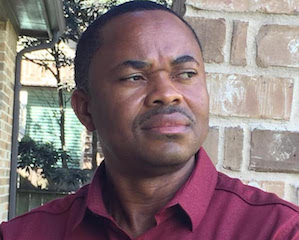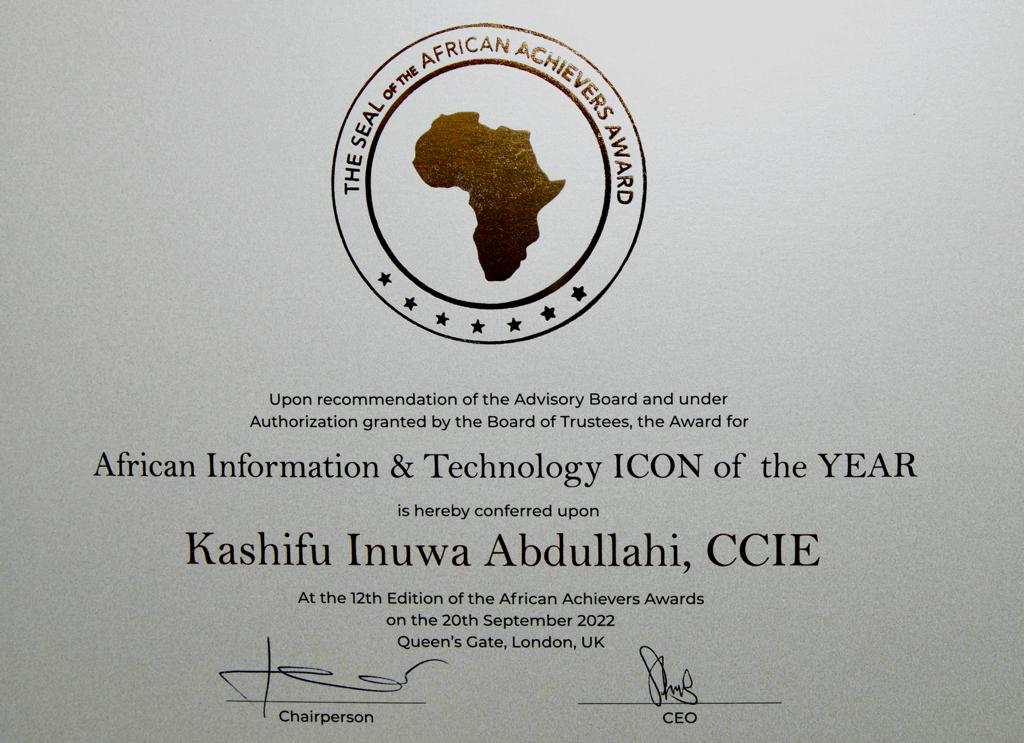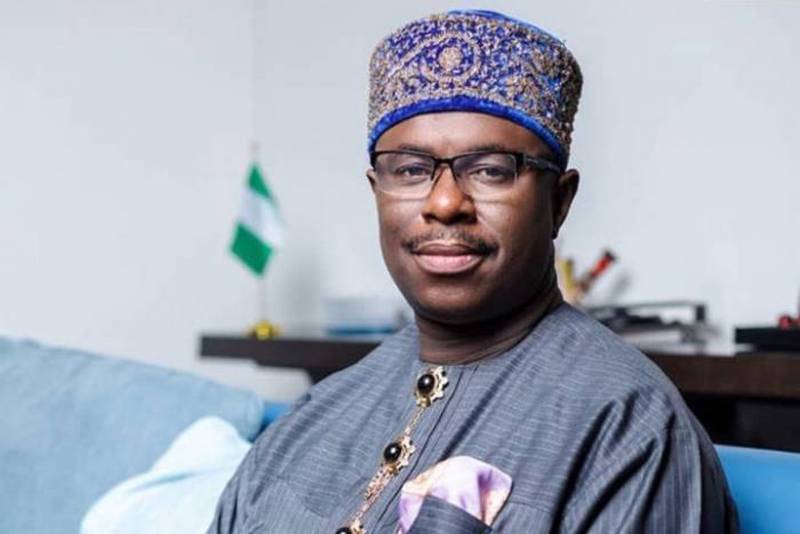Japa syndrome: Talent flight as the real cost of corruption in Nigeria
In the face of existential challenges facing Nigeria, the ensuing conversation arose among three Nigerians in the Diaspora on the way forward for a nation in crisis.
Osmund: While migration is a natural part of human experience all over the world, in recent years, the desperation to leave Nigeria for just about anywhere else in the globe has taken the form of an anxious, nerve-wracking pursuit on self-preservation colloquially captured in the word “Japa”. Japa is Yoruba for “to run, flee, or escape” from danger. Japa was inspired by the 2018 hit song with the eponymous title by the popular Nigerian artist, Naira Marley. Japa is a metaphor for an escape from life lived in the Hobbesian state: nasty, brutish, and short.
According to the United Nations, Nigeria had the highest number of international migrants from Africa between 2015 and 2020, with an estimated 2.4 million people leaving the country during that period. Also, a report by the World Economic Forum in 2018 found that Nigeria had the highest number of highly skilled emigrants leaving the country in Africa, with an estimated 20,000 professionals leaving every year. The main drivers of migration from Nigeria were economic reasons (such as a lack of job opportunities and poverty) and security concerns (such as conflict and terrorism), all fuelled by unconscionable levels of permissible graft in both private and public spheres.
Nigeria ranked 149 out of 180 countries in the Corruption Perceptions Index for 2020, according to a report by Transparency International (TI). While the immediate cost implications of such high levels of corruption are there for all to see, what is less obvious to so many is the far-reaching unintended consequences that are much worse and tend to undermine the future economic viability of our nation.
Every passing year, more and more Nigerians at the peak of their productive age, escape the pervasive corruption and lack of opportunities at home to seek greener pastures in a land far removed from home. The result is a brain drain that deprives our nation of the talent and expertise it needs to develop and compete globally. It’s almost like we are trapped in this vicious cycle of never-ending poverty while the rest of the world continues to leapfrog into the future. Farooq, I remember we had a little chat about this in the past. What’s the way out of these doldrums?
Farooq: Yes, it’s true that corruption stymies talent. It suffocates the creative energies of skilled, transaction-oriented people. But because the mobile energy of creative talent is difficult to contain and constrain for too long, immigration often provides an outlet for people who’re suppressed and unappreciated at home. That’s why, like you said, Osmund, there’s a direct relationship between increasing corruption and elevated levels of talent flight in transitional societies like Nigeria.
The obvious way to halt this is to stop corruption, but that’s an easy, all-too-obvious, simplistic, and unhelpful suggestion because people who benefit from corruption won’t stop it from a sense of moral obligation or a heightened ethical consciousness. That’s not the way most human beings are wired.
Most people are biochemically programmed to persist in and double down on anything that gives them a leg up, especially if there are no consequences for it. Unfortunately, the people who’re mandated by law to prevent and punish corruption in Nigeria are the very people who’re neck deep in it, who’re its worst perpetrators.
Criminals can’t and won’t prosecute and convict themselves for their crimes out of some kind of higher moral imperative. That would be self-cleansing, suicidal morality, which is rare in our cultural environment. But even if it weren’t rare, no society can be successfully run on the volitional, self-directed piety of individuals.
As you probably can tell, I have now become significantly more realistic and tamer in my expectations of Nigeria, so I won’t even suggest that we build institutional structures to fight corruption because institutions are only as good as the people who manage them, who enforce their rules.
In any case, the EFCC, ICPC, Due Process Office, etc. were instituted by the Olusegun Obasanjo administration to track, punish, and decelerate corruption in Nigeria. We all know how they’re faring and how much Obasanjo himself undermined them when he was president.
So, my admittedly cynical take is this: the relentless march of corruption in Nigeria will continue to drive away talents to countries that cherish and nurture them. But a future serious government can turn this to an advantage.
Because many people’s real homes are where their hearts are, exilic elites who leave their countries because their talents were not given the room to find their fullest expression tend to be willing to go back if they’re courted and rewarded by their home governments because, although their bodies are abroad, their hearts are often still in the countries they voluntarily dislocated from.
This, of course, isn’t true of all migratory elites, but the enhanced symbolic, social, and intellectual capital that migration to more industrialized societies confers often eases the burdens of reverse migration.
In other words, since we don’t seem to be able to stop corruption, and people who’re trapped by its deadening constrictions will always escape it through immigration, we can only hope that governments have enough sense to incentivize reverse diaspora-home migration to take advantage of the improved skills that diasporic ethnoscapes have acquired in their new homes.
Ireland did precisely that and went from being one of Europe’s backwaters to its fastest growing economy. I know Moses has a different take from mine. He once proposed that immigration isn’t always propelled by existential imperatives but by a combination of wanderlust, curiosity about other cultures and countries, and a self-sufficient migratory self-expression that is unmediated by economic anxieties.
Moses: Osmund, you began by reeling out the statistics of corruption in Nigeria, but I think that that approach can be misleading in two ways. First, most forms of corruption are difficult to measure because they involve illicit, informal flows and transactions. We’re therefore working with guesstimates that either exaggerate or underestimate the problem.
Secondly and more crucially, the problem with quantifying and reducing our corruption problem to numbers and statistics is that, for one thing you lose sight of the human and moral consequences of corruption, and, for another, you run the risk of sensationalizing and even pathologizing the problem. That is, you might, if you’re obsessed with the statistical representation of corruption in Nigeria, give the unintended impression that Nigerians are pathologically corrupt or are more corrupt than other people. That, of course, would be wrong.
In terms of money lost to corruption or the incidents of corruption, I don’t think our numbers approach those of the advanced economies, including the United States, where we live. There is a lot of waste and corruption in the US government at all levels, not to mention corporate corruption, whose scandals are almost monthly news staples.
The difference between US corruption and Nigeria’s is that due to the size of the US economy, corruption’s toll on citizens’ day-to-day lives is minimal to non-existent. For instance, in my city of Nashville, there are always news stories on the local TV station about corruption in the state, county, and city governments, but that has not and will never negatively affect the state of the road I drive on, the school my children attend, or public utilities like electricity and water. Such corruption does nothing to diminish my access to quality healthcare when I need it.
Therefore, in the big economies, the moral consequences of corruption are hardly noticeable, and those societies function despite the corruption in them.
This is in stark contrast to Nigeria. The amount of money we lose to corruption and the incidents of corruption in our county may be dwarfed by the numbers from the US, but the moral consequences of corruption in Nigeria are infinitely more than those of the US. In Nigeria, corruption literally kills because it keeps life-saving medicines from hospitals, safe drinking water from people who need it, and education away from children. It keeps people in poverty, which kills.
My overarching point then is that it is the moral consequence or the human toll of corruption in Nigeria that we should care about and focus on, not on the numbers game associated with corruption, which can often give ammunition to people in the developed world who want to hypocritically sensationalize our corruption problem and stereotype Nigerians as congenitally or pathologically corrupt so that they can feel good about themselves and their societies.
We need to focus on the disproportionately big damage corruption does to our country rather than on the dead-end debate on whether Nigeria is more or less corrupt than other societies.
The effect and toll of corruption should constitute the central theme in our outrage, not the self-serving and speculative corruption statistics of Western organizations.
For me that brings up another issue, which is that all corruptions are not created equal and that some types of corruption have a greater capacity to do harm to a society than others. What do I mean? In Nigeria, we not only have the obvious, garden variety corruption that’s universal—bribery, kickbacks, embezzlement of public funds, misapplication of public resources, inflated contracts, etc, which result in capital loss and capital flight. Nigeria is also plagued by the most insidious and arguably the most destructive kind of corruption: nepotism and ethno-religious favoritism at the expense of merit. This is the corruption that I believe Farooq talked about earlier.
Not only is Nigeria losing scarce, critical resources and funds and paying immediately for it in the form of infrastructural deficits, non-existent or defective social utilities and services, and the proliferation of preventable death, hunger, and disease; we’re also enthroning mediocrity and driving away talent and competence, which an economically troubled country like ours sorely needs to overcome adversity and get on the path of sustainable growth.
What I’m saying is that, unlike the United States and other countries, we have two crosscutting corruption problems that, in combination, have devastated Nigeria, stalled any chance of development, and foreclosed on our long-term economic prospects.
You can say a lot about corruption in the United States, of which there is plenty, some semi-legalized and others euphemized, normalized, and given procedural cover. But you cannot, for the most part, accuse the United States of actively, systematically turning away talent and incubating and rewarding people of mediocre aptitude and ability in their institutions. This is one of the reasons corruption, widespread as it is in the US, has not hobbled the society, and that the US thrives in spite of it.
Our own reality of giving reign to financial or fiscal corruption and also cultivating the corruption of privileging mediocrity over nation-building talent has, conversely, brought our country to its knees, undermining any effort at development.
Unlike Farooq, I’m not confident in the corrective capacity of a deliberate government policy to lure back Nigerian-born talents once they’re accomplished and ensconced in countries that are more receptive to and nurturing of their talent. I hate to take this pessimistic view, but I just don’t see the hypothetical silver lining that Farooq sees.
Let’s not even get into the fact that even if the scenario of returned talent and value were feasible, our leadership would neither embrace it nor have the political will to implement it.
I have come to the depressing conclusion that the corrupt, dysfunctional, mediocrity-hugging, and talent-killing system works for a critical mass of our people, both elite and non-elite, and so moving in a different direction for them is a non-starter.
As a result of this sad reality, the japa phenomenon as a consequence of corruption will continue and even accelerate. It is the only way for talent to escape the suffocating corruption and find fulfillment.
Osmund: It’s most unfortunate but the points raised by both of you are facts. What is also true is that the solutions to these man-made problems are not rocket science. For starters, Nigeria needs an enabling environment for local businesses and entrepreneurship to thrive and create jobs.
Our educational system is in a crisis mode and in dire need of an urgent rescue, in order to equip our young people with the skills needed to compete and succeed in a global economy.
Our security challenges are existential and should be addressed emergently to reduce the need for people to flee the country in search of safety and security. Above all, we should tackle the issue of corruption heads on. It’s clear to many what is at stake here. What is glaringly deficient, is the zeal, willpower, and commitment on the part of the nation’s leadership to do the right thing.
Human capital is inarguably Nigeria’s biggest asset and one of our compatriots summed it up so nicely when he said: “Effectively the future of the country is dependent on the youth population building the country through their creative energies, their innovation, and capacities. Every young person fleeing Nigeria in desperation carries with them a vital place of that future. It is an unaffordable price to pay for inefficient systems, corrupt institutions, and poor planning.” Enough said! Thank you, guys.
Farooq: Thank you, Osmund. Before you go, I just wanted to add quickly that Nigeria’s problem has never been an absence of solutions to its problems; its problem has always been the absence of the will and the commitment to implement even the most obvious solutions to its problems. The will and the commitment are absent precisely because their implementation will entail the moral self-immolation of the denizens of the circles of power. It will call forth sacrifice and the abnegation of the habitual but perverse perks and privileges that the elite class takes as its natural entitlement.
That’s why I proposed an easy but potentially effective strategy such as incentivizing reverse, even if temporary, migration of skilled diasporic elites. We have tried it before with varying levels of success. Ngozi Okonjo-Iweala, Muhammad Ali Pate, Barth Nnaji, Jelani Aliyu, etc. are examples of diasporan Nigerians who returned home on their own terms to help in areas they’re proficient in. So, there’s already a model to build on.
Moses: Thanks, Farooq, but we will have to continue this conversation in our next chat because my skepticism remains.
The examples you mentioned are great, but in spite of those returns, here we are still lamenting the destructive impact of both capital and talent flight as a result of fiscal and nepotistic corruption. So it doesn’t look like that model worked. The question is why?
To be clear, it’s not that I am discounting the ameliorative potential of returned talent in specific sectors, but in my opinion unless there is a critical mass of such returns there will be no systemic impact and any sectoral gain from individual returns will be lost.
Maybe next time we can get into specifics on how to incentivize a critical pool of return in place of the previous practice of headhunting a few accomplished diaspora Nigerians for time-limited high profile political and technocratic positions.
Osmund Agbo, a medical doctor and social justice advocate, writes from Houston, Texas, while Moses Ochonu is a professor of African History at Vanderbilt University, Nashville, Tennessee, and Farooq Kperogi is a professor of Communication at the Kennesaw State University, Georgia.



